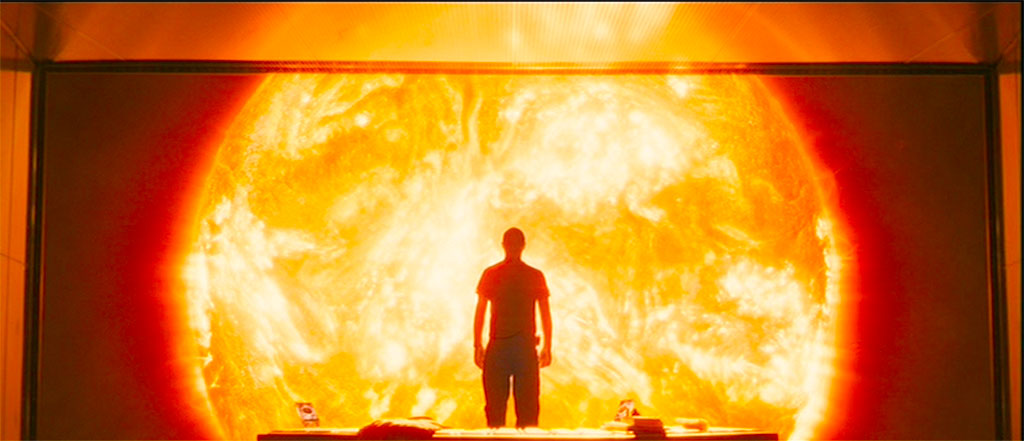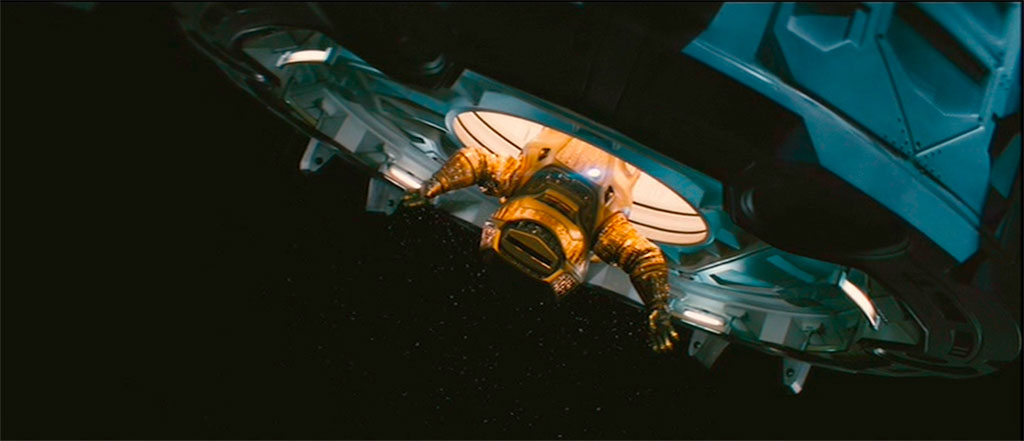Sunshine (the movie not the phenomena)
 I
came upon the film Sunshine by way of the exemplar Moon. The latter being
perhaps one of the best instances of hard science fiction that we have seen in
theatres since 2001 A Space Odyssey. Sunshine, while a very good film, cannot
live up to Moon simply because of some very basic plotting issues. Nevertheless,
it is a very interesting science fiction flick.
I
came upon the film Sunshine by way of the exemplar Moon. The latter being
perhaps one of the best instances of hard science fiction that we have seen in
theatres since 2001 A Space Odyssey. Sunshine, while a very good film, cannot
live up to Moon simply because of some very basic plotting issues. Nevertheless,
it is a very interesting science fiction flick.
Sunshine works on the premise that in fifty-some years the sun’s light has begun to dim plunging the earth into an eternal winter. In order to revive the fires of the sun, Icarus was sent to detonate a payload with “the mass of Manhattan” into the sun’s surface. This mission, for unknown reasons failed. The film begins following the second mission (Icarus II) as it retraces the steps of the Icarus I in an attempt to follow up on the same mission.
This is decidedly a psychological film — one that draws upon many past science fiction themes of the lonesomeness and vastness of space and how this conveys the minuteness of humanity in the cosmos. It is particularly interesting how involved the main cast gets into the sheer importance of their mission and the willingness to throw everything away for their mission. That said, they are very human characters, not the machismo heroes of the action-suspense genre we often see out of Hollywood.
The sun, our antagonist, plays so many roles for our heroes as they address it both as a villain who threatens the ship and with a kind of spiritual reverence held by various pagan sun gods.
The very name Icarus seems to very important to understanding the film. In the old Greek myth, Icarus is the son of Daedalus the inventor. The two are imprisoned onCrete and in a stroke of genius Daedalus constructs wings for the two to escape the island by flying through the heavens. Daedalus warns Icarus that the wings are fragile and made of wax which will melt if he flies two close to the sun. Nevertheless, Icarus is too taken up with the excitement of flight and flies higher and higher until his wings melt and he plummets into the sea.
Herein we can see the fate of Icarus the ship — a work of technological achievement sent on a mission to visit Apollo himself. In flying so close to the sun, it chances total destruction by it’s firing furnace and only by a massive aspis-styled that reflects the sun’s light.
Returning the mythical elements, the crew seem to be in awe of the sun. They spend hours watching it’s furnace glow, talk reverently about it, and dream nightmarish dreams about it’s flames.

The only issue with Sunshine? Besides introducing the ridiculous cliché of an accidental oxygen shortage, the third act forgets who it’s antagonist is. The sun, such a perfect villain for a man-vs-nature plot is supplanted by the mad captain of the Icarus I who boards the ship and turns an otherwise amazing film into a run of the mill slasher flick. The captain, burnt by the sun’s rays, and having lived alone aboard the Icarus I for seven years believes the sun that the sun is God and that it has commanded him to abandon the mission.
While I can appreciate the sun-god motif in the film and the interesting questions that Sunshine brings to the table about how we have related to our star over the centuries — the rabid fundamentalist captain is out of place in this film. He suddenly interrupts our story and transforms it into a battle between science and fundamentalism or man-vs-man which is not altogether what we have been promised in the first two acts.
Indeed, the violence that the deprived captain inflicts upon the crew is a merger of horror into an otherwise fulfilling film. I do enjoy the occasional cerebral horror film. However, in Sunshine I was not expecting a razor-blade wielding maniac to suddenly appear and displace the sun from it’s dominant role of antagonizing our heroes and I do not think his addition adds anything to the film other than to pad it out an extra twenty minutes.
Despite the plotting flaws, Sunshine is an excellent example of how cinematic science fiction can rise above the empty plots ofHollywood action-suspense flicks into truly masterful pieces that explore our relationships with being. I highly recommend watching it.